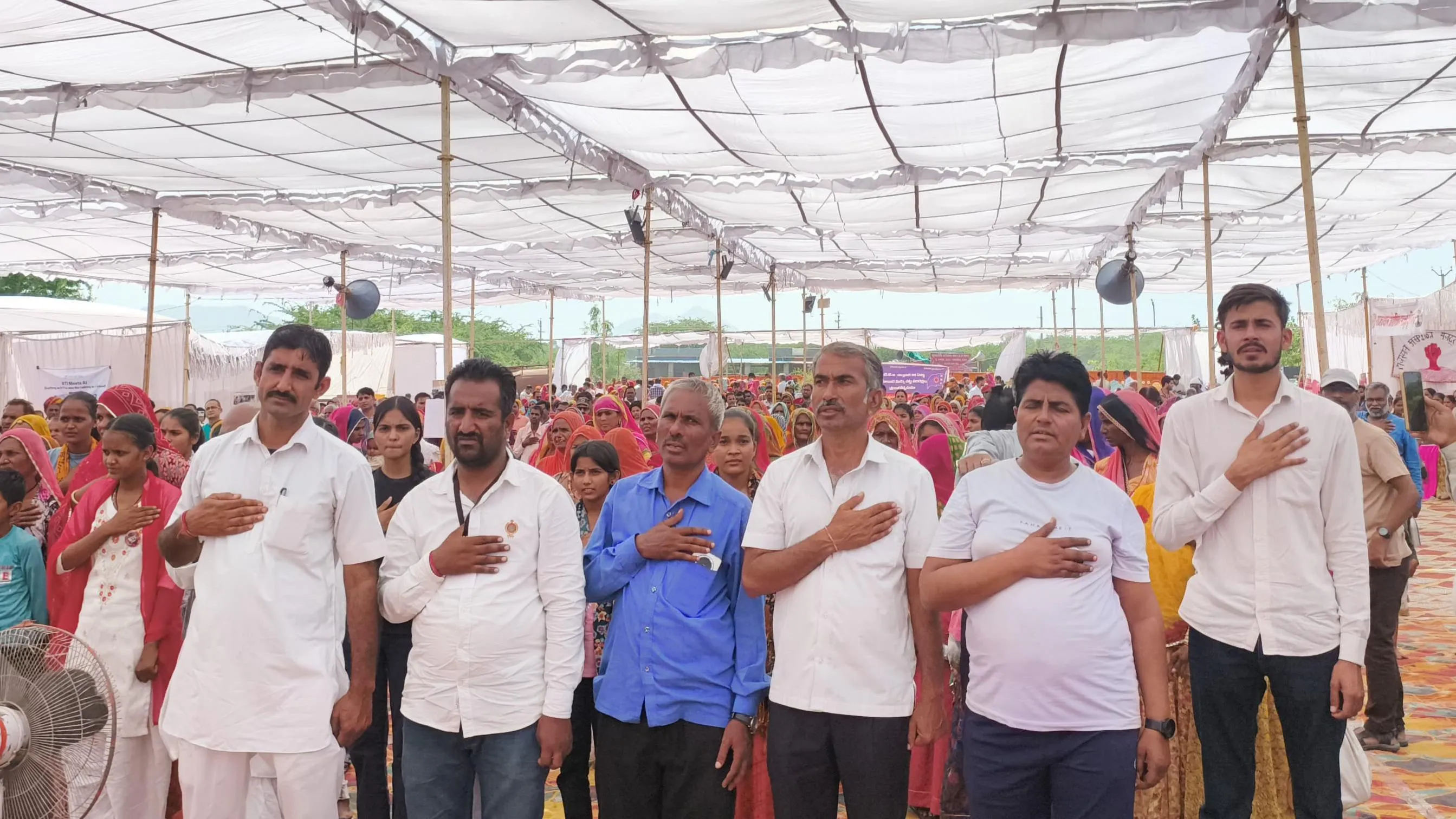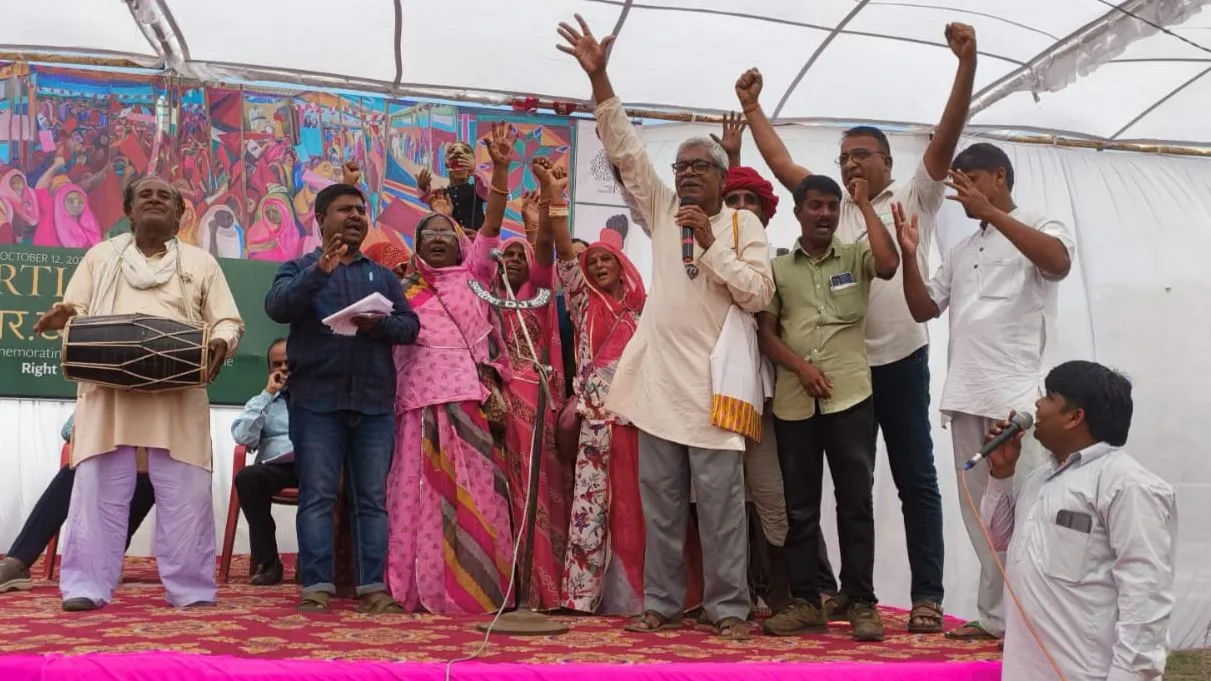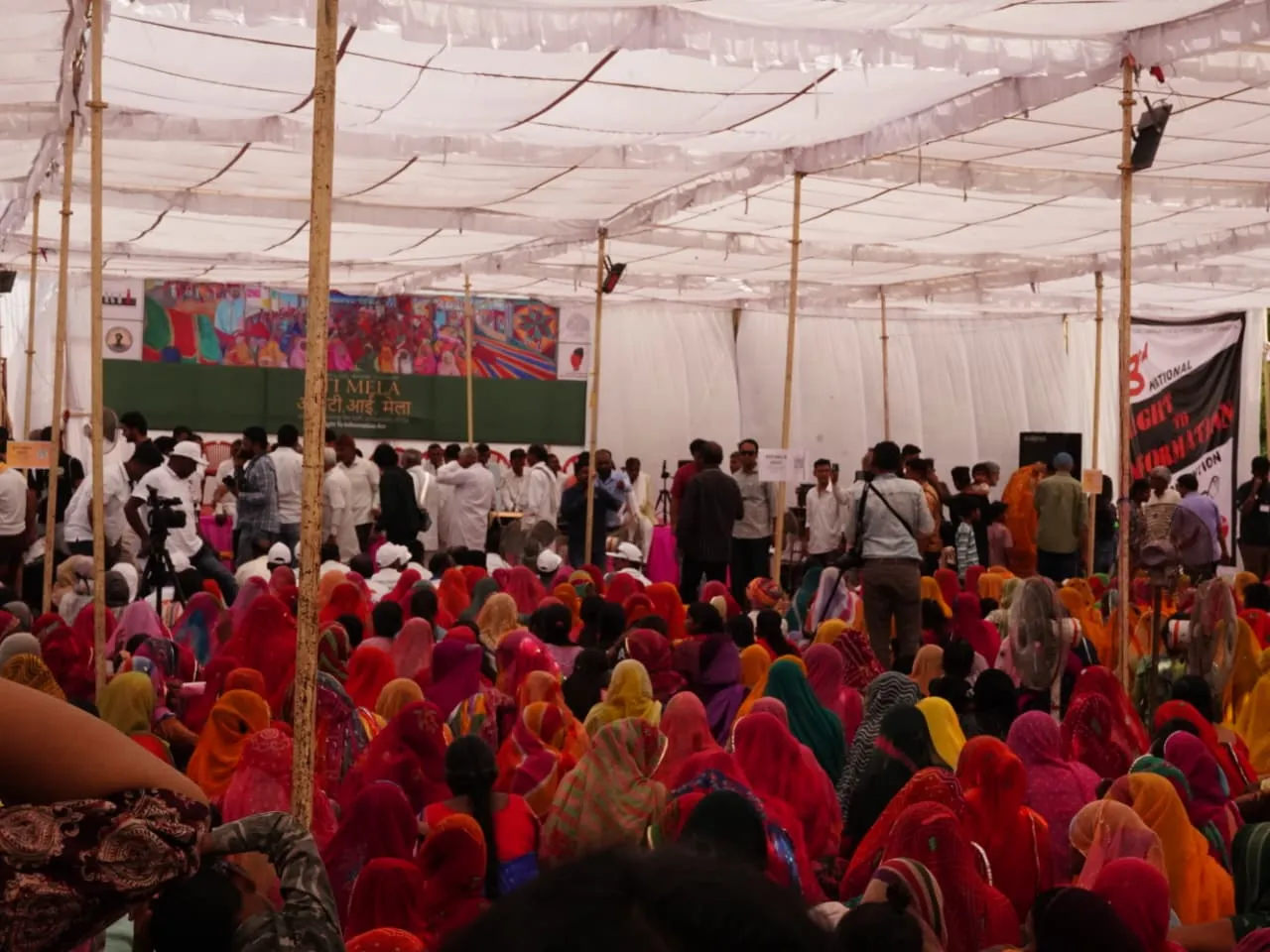
On the Eve of RTI Day, MKSS Revives the Historic Memories of 1996
On RTI’s eve, MKSS revived 1996’s spirit, honoring citizens who demanded records, accountability, dignity, transparency, and justice through collective action.
On the eve of the twentieth anniversary of the Right to Information Act, the Mazdoor Kisan Shakti Sangathan gathered at Beawar’s historic Chang Gate, the birthplace of the slogan “Right to Know, Right to Live.” The evening opened with short testimonies that traced how villagers first asked to inspect muster rolls and ration records, and how those questions grew into a nationwide movement. Participants then walked in a candle march from Chang Gate to Ajmeri Gate, reaffirming the people’s pledge to transparency and accountability. Speakers emphasized that the poor and the marginalised brought the Right to Information into India’s democratic practice, and that its future depends on citizens who continue to ask questions and demand answers. The programme closed with an invitation to the country’s first RTI Fair at the RTI Museum in Narbad Khera, featuring exhibits, workshops, and living archives that document this journey.


The march retraced a path rich with memory. Elders recalled the first public hearings where workers read out bills and vouchers, and ordinary people tested the strength of their new voice. Youth groups carried placards, while women’s collectives led songs that linked daily struggles with the promise of accountability. Volunteers distributed leaflets explaining how to file RTI applications and how timely disclosure can protect wages, rations, and services. The atmosphere remained calm, dignified, and resolute—an assertion that information is a public good and that democratic institutions must be answerable to the people they serve.
Key Points
- Commemoration of twenty years of the RTI Act at the historic origin site.
- Candle march from Chang Gate to Ajmeri Gate reaffirmed the pledge to accountability.
- Message: the poor brought RTI; citizens will keep it alive through vigilant use.
- Announcement of India’s first RTI Fair at the RTI Museum, Narbad Khera.



Tomorrow’s RTI Fair at the Museum will extend this spirit with exhibits, documents, and hands-on clinics. Visitors can draft applications, learn to read replies, and hear stories from frontline campaigns. Curated displays trace the leap from village demands to national legislation, while community booths highlight current challenges—delays, exemptions, and digital opacity—and the tools citizens can use to respond. The fair invites everyone to treat information as a daily right, not a rare privilege, and to keep the institutions of democracy open, responsive, and answerable.
